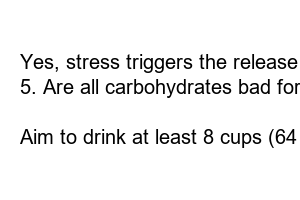혈당 수치 낮추는 법
Title: Lower Blood Sugar Levels Naturally: Effective Strategies for a Healthier You
Introduction:
Maintaining optimal blood sugar levels is crucial for overall health and well-being. High blood sugar levels can lead to various complications, including diabetes and heart disease. If you’re looking for effective ways to lower your blood sugar levels naturally, this article is for you. Read on to discover practical strategies that can make a significant difference in managing your blood sugar levels.
1. Get Active and Stay Active:
Regular physical activity is a key component in blood sugar management. Engaging in activities such as brisk walking, cycling, or swimming helps your body utilize glucose for energy, resulting in lower blood sugar levels. Aim for at least 30 minutes of moderate-intensity exercise every day.
2. Follow a Balanced Diet:
Maintaining a balanced and nutritious diet plays a vital role in managing blood sugar levels. Focus on consuming whole foods, including plenty of fresh fruits, vegetables, lean proteins, and whole grains. **Avoid processed foods** that are typically high in added sugars and unhealthy fats, as they can spike your blood sugar levels.
3. Choose Low Glycemic Index Foods:
Opt for foods with a low glycemic index (GI) to keep blood sugar levels stable. These foods release glucose slowly, preventing sudden spikes. Incorporate foods such as lentils, whole wheat, sweet potatoes, and berries into your diet. **Avoid highly processed and refined foods**, as they have a higher GI.
4. Stay Hydrated:
Proper hydration is essential for managing blood sugar levels. Drinking an adequate amount of water throughout the day helps flush out excess glucose from your bloodstream. **Limit sugary drinks and opt for water or unsweetened beverages**.
5. Manage Stress Levels:
Chronic stress can contribute to elevated blood sugar levels. Incorporate stress-reducing activities into your daily routine, such as meditation, yoga, or deep breathing exercises. **Regular relaxation techniques** help control stress hormones and promote healthier blood sugar levels.
6. Get Sufficient Sleep:
Lack of sleep can negatively impact blood sugar control. Aim for 7-8 hours of quality sleep each night. **Establish a consistent sleep routine** and create a comfortable sleeping environment to improve sleep quality and blood sugar regulation.
7. Monitor Portion Sizes:
Controlling portion sizes is crucial for managing blood sugar levels. Be mindful of your serving sizes and opt for smaller, more frequent meals throughout the day. This approach helps regulate blood sugar spikes and promotes steady levels.
Summary:
Incorporating these lifestyle changes can help you effectively lower your blood sugar levels naturally. Regular physical activity, a balanced diet, low GI foods, proper hydration, stress management, sufficient sleep, and portion control are key elements in maintaining optimal blood sugar levels. By adopting these strategies, you can improve your overall health and reduce the risk of complications associated with high blood sugar levels.
FAQs:
1. Can I lower my blood sugar levels without medication?
While medication may be necessary for some individuals, following a healthy lifestyle can significantly influence blood sugar levels and may reduce reliance on medication.
2. How long does it take to see results in blood sugar control?
Results vary from person to person. By making consistent lifestyle changes, it is possible to see improvements in blood sugar levels within a few weeks.
3. Can exercise alone lower blood sugar levels?
Exercise is an essential component, but it should be accompanied by a balanced diet and other healthy lifestyle practices for effective blood sugar management.
4. Can stress affect blood sugar levels?
Yes, stress triggers the release of stress hormones, which can raise blood sugar levels. Incorporating stress-reducing techniques into your routine can help control this.
5. Are all carbohydrates bad for blood sugar control?
Not all carbohydrates are created equal. Choose complex carbs with a low glycemic index, as they have a minimal impact on blood sugar levels.
6. How much water should I drink to maintain proper hydration?
Aim to drink at least 8 cups (64 ounces) of water each day for optimal hydration and blood sugar control.

